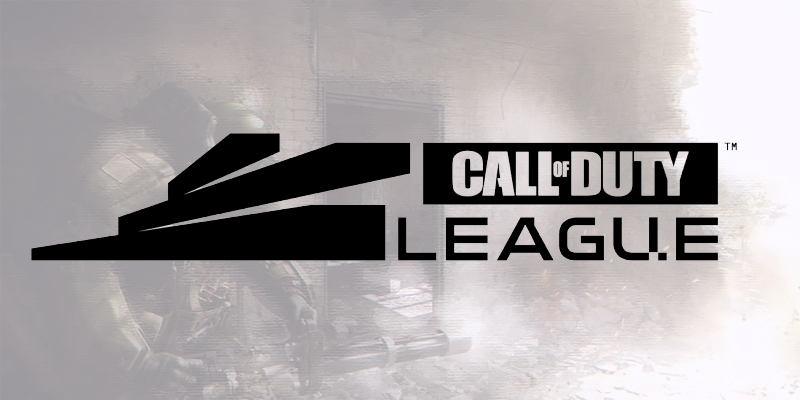Mentioned in this article
League/Tournament Brands:
In 2020, Activision Blizzard will launch the Call of Duty League (CDL), a city-based franchise league that mirrors the Overwatch League (OWL). While Overwatch launched with an esports model baked in, Call of Duty has an active and diverse competitive community going back over a decade. Time will tell whether CDL’s success will also mirror that of OWL, but for now, veteran players and their agents have a lot of adjusting to do.
CDL’s franchise system changes many aspects of Call of Duty esports, from team formation to sponsorships, and with that comes just as many pros and cons.
Mike Lee, an esports agent at United Talent Agency (UTA), sees franchising as an opportunity for Call of Duty players to better plan their futures.
“Franchising has brought stability and structure to the Call of Duty scene,” Lee told The Esports Observer. “This allows agents to confidently negotiate longer, more lucrative and/or flexible multi-year deals for our clients. As a result, agents and teams can invest more in helping build their players’ careers both on and off the field.”
Building those careers from an agent’s perspective can still be a challenge, however. Creating esports leagues may be inspired by those in traditional sports, but they are still two very different animals—especially in terms of sponsorship.

“We negotiate with the teams, but we broker flexible deals so that clients can continue to pursue opportunities independently from their organizations,” said Lee. “In the NBA, teams don’t get to control or have a say in the players’ sponsorship deals, and we are fighting for esports players to have that same right.”
Perhaps the biggest challenge Lee faces, he says, is matching players with the right organization.
“No client is the same and they’re all driven by different goals, so making sure we find the best organization that supports their individual ambitions is always the toughest challenge.”
As always, a player’s salary will be a major consideration when signing on with a CDL team. Under the CDL franchise system, players must be given a minimum $50K USD guaranteed salary along with healthcare and retirement benefits.
Although there is no stipulated salary limit for players, CDL will mirror OWL’s ‘competitive balance tax,’ according to a document leaked to Dexerto. To prevent any one team from creating a monopoly of talent, the maximum player payroll for any given team will be $1.57M for the 2020 season.
Lee’s client, Ian “Crimsix” Porter, is a professional Call of Duty player for CDL team Dallas Empire. As the “winningest player” in Call of Duty history with 32 Major tournaments and two World Championships, Porter has personally seen the game’s competitive scene evolve over the past decade.
When asked about the challenges posed to players under the franchise system, Porter expressed concerns about how the limitations on payroll spending could impact players.
“Teams have a lot more options for substitutes but with the [payroll spending limit], you will likely see overwhelmingly ‘stacked’ teams with subs who will be barely used/only have substitute intentions,” said Porter. “Other teams may have 10 players fighting for the five starting spots. This is a transition year, and [I am] not sure how it will play out, but I believe that the year after next will change the way the substitutes are used.”
Call of Duty has a long, rich competitive history in which groups of friends have formed teams, risen up the ranks, created lasting rivalries, and become the best in the world. Now, franchising limits CoD esports participation at the professional level to organizations that can afford the rumored $25M price tag.

But all is not lost for esports hopefuls, says Porter, explaining that pro players’ absences from live streams can prove beneficial to others looking to be seen. After all, each of the 12 franchised CDL teams will host two multi-day competitions during the regular season, with one each during spring and summer splits of the 2020 season. In addition, the league will host a Midseason Weekend event between the splits.
“The CDL players will be traveling A LOT,” said Porter. “This will open up opportunities for other players’ streams to get recognized compared to if the CDL players were at home streaming all the time.”
Beyond viewers, live streaming and game video content can also attract representation, added Lee.
“The great thing about esports, in general, is that there are opportunities ‘off the court’ for a player to create content and make a career on a live streaming platform or YouTube,” he said. “As long as a client has a charismatic personality, can draw an audience while staying true to a personal brand, and can build a community of fans, we can help them drive revenue and build a business.”
Porter claims not to feel any added pressure to win, now that he’s employed by a team that paid millions for a franchise slot.
“I just want to win every single map that I load in to. Doesn’t matter who it’s against, why we’re there, or how important it is. It makes no difference to me. I’m here to win,” he said.

